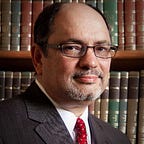History of Christmas: Why do we celebrate it on December 25?
THE HISTORY OF CHRISTMAS: ADVENT
Here begins our series of articles on the History of Christmas. Advent begins this Sunday.
Advent means the “coming” of the Christ Child. The Advent Season is marked by the four Sundays before Christmas and is celebrated in the church calendar as one the most festive seasons of the year.
As we shall see in this series many of the traditions, customs, and stories of the Advent Season have Christian roots while others have non-Christian sources. Some are legendary, and others are firmly rooted in history.
Date:
It is perhaps ironic that the actual date of the Nativity or birth of the Christ Child, which our Western calendar system is based upon, is not known with certainty. Indeed, the Feast of Christmas was not an early festival for the church, like Resurrection Sunday (Easter) was, and in fact did not see general observance until the 4th century. The western church did not agree upon the current date of December 25 until the early part of the 5th century under Pope Leo I, though this date for Christmas was first mentioned in the 4th century illuminated manuscript the Chronography of 354.
History:
Some historians, especially in the eastern church, suggested that the date of Christmas was derived as 9 months after the Annunciation (to Mary) which is celebrated on March 25. This would place the birth of Christ on December 25. Many 18th century scholars, including Isaac Newton, argued that this date was picked to supplant the pagan year-end holiday Saturnalia that was celebrated by the Romans and many of whose customs survive today: decorations of evergreen, holly, mistletoe, feasting, and the exchange of gifts.
Roman:
December 25, the ancient date for their Winter Solstice, was celebrated as the “birth of the unconquerable sun” or Dies Natalis Solis Invicti when the sun’s transit was at the lowest point on the horizon with the shortest “day” of the year and then with longer days coming began its transit northward. Under the Christian calendar the 25th was to become known as the birth of the unconquerable Son.
Bill Petro, your friendly neighborhood historian
www.billpetro.com
